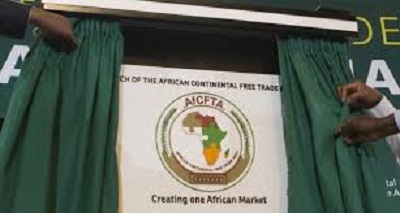
The Institute of Chartered Accountants, Ghana (ICAG) has held a public forum in the Sekondi-Takoradi metropolis to brainstorm on whether the African Continental Free Trade Agreement (AfCFTA) is a better choice.
The forum, attended by the business community, students, and ICAG members, was also to create awareness on the economic implications, advantages and benefits to be derived from the AfCFTA, as well as the responsibilities on all concerned agencies.
Mr Stephen Mickson Opoku, the Principal Commercial Officer at the Ministry of Trade and Industry (MOTI), explained that the agreement would create the world’s largest free trade zone in Africa, with her 54 countries and 1.2 billion people, being the fastest growing continent.
He said the agreement would also set the average intra-African tariff at 6.1 per cent to boost employment and increase intra-African trade by 50 per cent to help diversify the economy.
Touching on how the AfCFTA would benefit the average person, Mr Opoku said it was a good policy with long term benefits that were much larger than the short term costs, but that it would only benefit big businesses if the countries failed to reform their domestic economic policies.
“Free trade requires responsive firms working in a dynamic economy, many African nations have domestic policies that cause economic stagnation, keeping firms small and unable to respond to changes effectively,” he added.
There were many large economic and moral benefits to free trade, he said, and that realising those benefits was a positive outcome for the African society.
Mr Kwabena Hemeng-Ntiamoah, Council member of ICAG, said the AfCFTA would allow people more options in service delivery, enable trading partners to rely on each other, and engage in cooperative action leading to better and more peaceful relationships.
On the economic benefits, he said it would engender the best use of mobility of resources, give more diverse consumer choices, and increase competition to drive production efficiency





